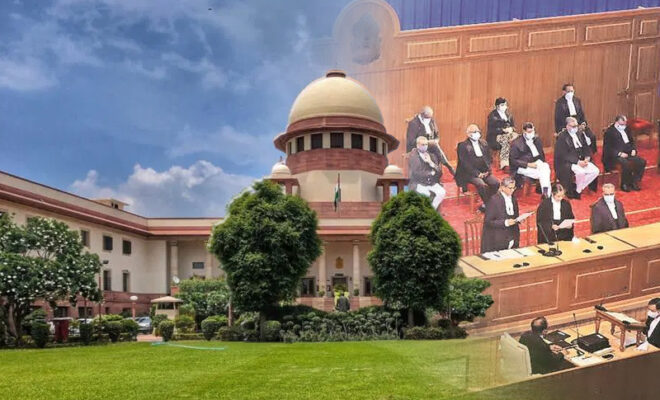EWS Quota: Supreme Court Approves 10% Reservation For Poors Among Forward Castes

Even rich people are benefiting from the reservation quota, they just need to belong to a lower caste. But there was no place for forward castes till date, even if they’re poor.
Three of the five members of the Supreme Court’s constitutional bench have supported the 10% reservation for economically disadvantaged groups in both admissions and employment among the general category.
The majority opinion was shared by Justices Dinesh Maheshwari, Bela Trivedi, and JB Pardiwala, as well as Chief Justice UU Lalit and Justice Ravindra Bhat.
People applauded the Supreme Court’s decision to uphold the EWS quota and declared it a success for Prime Minister Narendra Modi in carrying out his “mission” to promote social justice for the nation’s underprivileged.
The modification establishes a distinct type of EWS. One cannot claim that the absence of SEBCs is discriminatory or in violation of the Constitution. Justice Trivedi made a note.
Reservation based on economic criteria does not contradict the constitution’s fundamental principles, and EWS reservation does not breach the equality code, according to Justice Dinesh Maheshwari.
Justices Dinesh Maheshwari and Bela Trivedi also conferred. According to him, the 103rd Amendment to the Constitution cannot be overturned because it is discriminatory or violates fundamental principles.
He also asserted that the 103rd Constitutional Amendment is valid and does not violate the Constitution’s fundamental principles.
The Center had previously argued before the Supreme Court that the EWS reserve does not go against the fundamental framework.
The case brought by Janhit Abhiyan concerns the constitutional legality of the 103rd Amendment Act, 2019, which allowed the State to make reservations in subjects of public employment and higher education based only on economic factors.
Additionally, the Janhit case is being tried concurrently with an appeal the Andhra Pradesh government filed against the High Court’s decision to overturn its 2005 judgment giving reservations in education and the public sector for the entirety of the State’s Muslim population.



